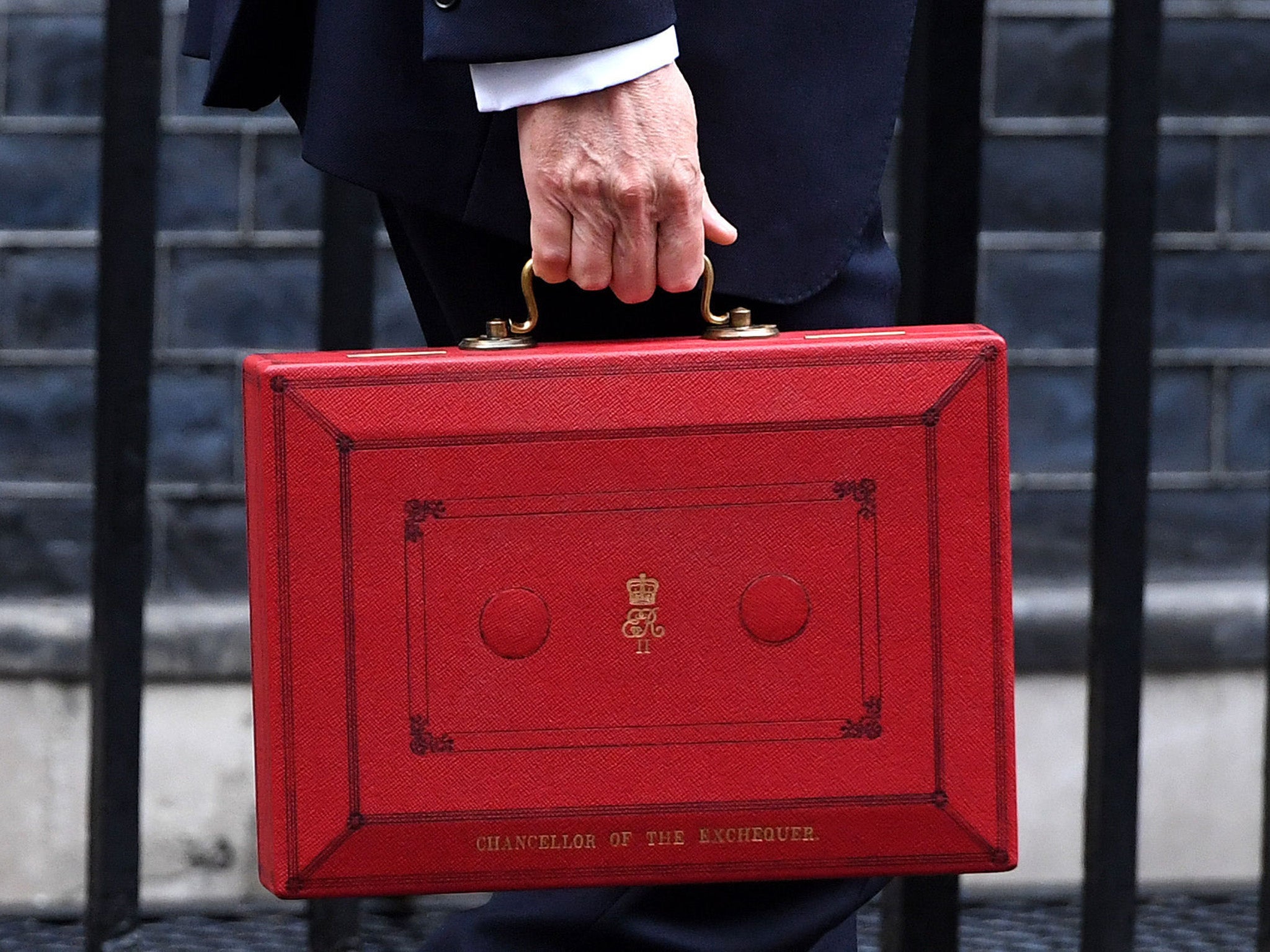Forget Philip Hammond – this was Jeremy Corbyn's Budget, complete with Labour policies
This was, at its core, a spending Budget – the death knell of austerity. Fiscal Phil, it appears, has become Handout Hammond


Today’s Budget was Philip Hammond’s second. It was also, in many ways, Jeremy Corbyn’s first.
While the Chancellor stopped far short of what his left-wing opponents would like, he unveiled a stream of spending pledges in areas where Labour has long demanded investment. There was a renewed focus on housing, a cash boost for the NHS, investment in teachers, a possible pay rise for nurses, money for scientific research.
True, the NHS cash is a lot less than needed, the housing pledges included virtually no new money and the stamp duty cut for first-time buyers will, according to the OBR, benefit current homeowners more than it will aspiring ones. But make no mistake: this was a fundamental shift in tone and direction. It was the end, after seven long years, of austerity – a splurge of spending pledges made by ministers who only months ago had mocked Labour about its penchant for magic money trees.
While the Chancellor could have been much bolder and gone much further, the priorities he focused on could just as well have been chosen by the Opposition: changes to universal credit, spending on green technology, help for young people.
This was, at its core, a spending Budget – the death knell of austerity. It marked a sharp turn away from the Tories’ priorities over the last seven years and a shift towards Labour’s.
As such, it was a very different Budget to the type we have grown used to in recent years and seemingly a very different Chancellor to the man who famously prides himself on prudence. Fiscal Phil, it appeared, had become Handout Hammond.
It says it all that in the Chancellor’s 70-minute speech there were just three mentions of the word “deficit”, and ten of the national debt. In contrast, the Chancellor said “invest” 34 times and “fund” on 30 occasions.
It would have been unthinkable just 20 months ago, when George Osborne sternly reminded the nation of the need for continuing austerity, that a Tory chancellor would so soon stand at the despatch box delivering a budget that barely mentioned debt.
The language, too, was different: Hammond spoke about inequality, caring for the vulnerable, training teachers, not being too reliant on private developers. This was a fundamental change. The Chancellor was attempting to convince voters that his was a Government committed to investing in public services.
That is, in part, because of Jeremy Corbyn. The Labour leader has made an argument against austerity that cut through in a way it has not done previously. As he did so, people began to believe there could be wholesale investment in public services and a reduction in inequality – something the majority have always wanted but that many feared was a recipe for fiscal disaster. He convinced voters of something Ed Miliband was never able to: that austerity was not just undesirable, it was unnecessary too. People’s perceptions have changed, as have their political demands. Now the Tories are playing catch-up.

Philip Hammond’s Budget was a recognition of Corbyn’s appeal – particularly to younger voters – and the Tories’ desperation to steal some of it. They know that, with millions struggling with housing costs, battling to get a GP appointment or find a school for their children, buzzwords about strength and stability no longer cut it. If anyone still doubted that Corbyn has shifted Britain’s political debate to the left, this Budget was their answer.
The Labour leader’s surprise stardom is not, of course, the only reason for the shift. It was inevitable that the public would grow tired of austerity eventually, and to some extent he was in the right place at the right time. There is only so much belt-tightening that the public can be asked to make before they get tired of it – especially when the promised debt-free future fails to materialise.
That shift began when Corbyn was still an obscure backbencher. In September 2012, 54 per cent of voters said the state of the economy was one of the most important issues facing Britain – by some distance their biggest concern. Only 20 per cent prioritised the NHS and 13 per cent education. By the time Corbyn assumed the Labour leadership in September 2015, that had already flipped entirely: 36 per cent said the NHS was a top priority while only 25 per cent thought the economy was. The Labour leader may have surfed the anti-austerity wave and built momentum behind it, but he was not its only driving force.
It was also all but impossible to maintain austerity under the leadership of Theresa May and Philip Hammond – far less convincing figureheads in voters’ minds than David Cameron and George Osborne. May struggles to win a debate at the best of times; convincing the public that it must go on suffering indefinitely is, truth be told, beyond her political skills.
Yet the role played by Corbyn should not be underestimated. He was the politician – one of only a handful – espousing a genuine anti-austerity message at just the time the public was beginning to reach the same conclusion.

The Labour leader has captured the public’s imagination and forced the Tories to respond. He is increasingly setting the political agenda. He may never lead Labour to power, but today’s Budget showed the influence he has already accumulated in forcing his opponents on to ground that for years they were reluctant to tread.
For the Conservatives, the move towards Labour terrain carries its own risk. The Tory-drawn dividing lines at the last two elections were clear: Labour recklessness versus Conservative stability. But if both parties are promising investment and deprioritising the need to cut national debt, that is a very different contest and one it is immeasurably harder for Theresa May and Philip Hammond to win.
Jeremy Corbyn has changed the rules of the game. The Tories are now in a bind. They cannot afford to ignore the public desire for change, but nor can they afford to move the main political debate to one about who is best qualified to invest in public services or tackle inequality. Labour will win that argument every time.
This Budget makes it more likely that the next election will be fought on Labour’s turf. It was a clear response to the public’s demand for change – a desire that has been expertly fuelled by the Labour leadership. In that sense, this Budget – and the future direction it sets – belonged to Jeremy Corbyn. The Labour leader has already changed the country in a way most thought he never could.
Join our commenting forum
Join thought-provoking conversations, follow other Independent readers and see their replies
Comments
Bookmark popover
Removed from bookmarks